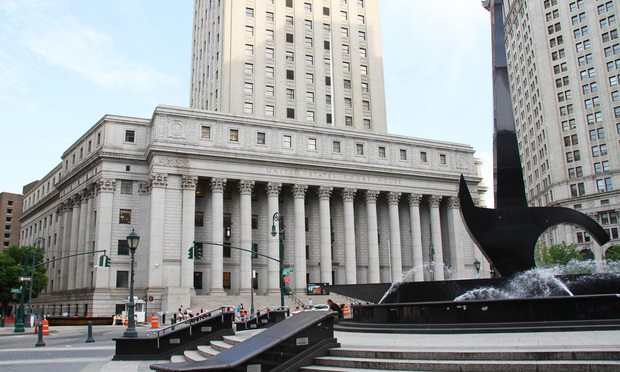Susan E Hurd

April 11, 2024 | National Law Journal
Goldman Sachs: Getting the Last Word on Class CertificationThe U.S. Court of Appeals for the Second Circuit's decision has broad potential implications for companies seeking to defeat certification of class claims based on violations of the federal securities laws.
By Susan E. Hurd
6 minute read

June 27, 2019 | National Law Journal
Escaping Price Impact PurgatoryLeading up to the Supreme Court's decision in Halliburton Co. v. Erica P. John Fund, the securities bar waited in great suspense to see whether the Court would overrule the "fraud-on-the-market" presumption of reliance established many years earlier in Basic v. Levinson. District courts have, however, struggled applying Halliburton.
By Susan E. Hurd and Courtney Quirós
5 minute read
February 18, 2008 | National Law Journal
Sound legal analysisThe U.S. Supreme Court recently issued its opinion in Stoneridge. The court concluded that certain nonspeaking defendants were not liable under Section 10(b) of the Securities Exchange Act of 1934 because the investors at issue did not rely on anything these defendants said or did. The inability to plead reliance as to these defendants � a critical element of a cause of action under Section 10(b) � required dismissal. The court's conclusions are legally sound and squarely grounded in its prior precedent.
By Susan E. Hurd / Special to The National Law Journal
5 minute read
January 25, 2007 | National Law Journal
2d Circuit's 'IPO' RulingThe U.S. Supreme Court long ago instructed judges to engage in a "rigorous analysis" of Fed. R. Civ. P. 23's class certification requirements. Yet an earlier high court decision -- Eisen v. Carlisle & Jacquelin -- was routinely invoked by plaintiffs in an attempt to discourage that analysis. The 2d Circuit recently joined other courts in rejecting this argument.
By Susan E. Hurd and Michael Johnson
9 minute read
December 23, 2009 | Daily Report Online
In Practice: A change in tideIt has been seven years since President George W. Bush signed the Sarbanes-Oxley Act into law, declaring that it contained "the most far-reaching reforms of American business practices since the time of Franklin D. Roosevelt." One provision of the act, Section 806, was included to prohibit retaliation against employees who reported suspected fraud to higher-ups in the company.
By Lisa H. Cassilly and Susan E. Hurd
6 minute read
January 29, 2007 | National Law Journal
2d Circuit's 'IPO' RulingIn re Initial Pub. Offering Sec. Litig., the 2d Circuit has provided much needed, practical guidance to lower courts on how best to comply with the 'rigorous analysis' obligation of Fed. R. Civ. P. 23's class certification requirements.
By Susan E. Hurd and Michael Johnson
9 minute read
March 08, 2004 | National Law Journal
Should securities suit classes be subdivided?Since the enactment of the Private Securities Litigation Reform Act of 1995, issues have arisen regarding its lead plaintiff provision that have complicated what Congress intended to be a streamlined and efficient system. One issue that has been the focus of several recent decisions is the idea that, prior to ruling on class certification, the court should divide the class into subclasses and appoint different lead plaintiffs and lead counsel for each subclass.
By Susan E. Hurd and Christine M. Bautista Special to The National Law Journal
10 minute read
Trending Stories
- 1Thursday Newspaper
- 2Public Notices/Calendars
- 3Judicial Ethics Opinion 24-117
- 4Rejuvenation of a Sharp Employer Non-Compete Tool: Delaware Supreme Court Reinvigorates the Employee Choice Doctrine
- 5Mastering Litigation in New York’s Commercial Division Part V, Leave It to the Experts: Expert Discovery in the New York Commercial Division



